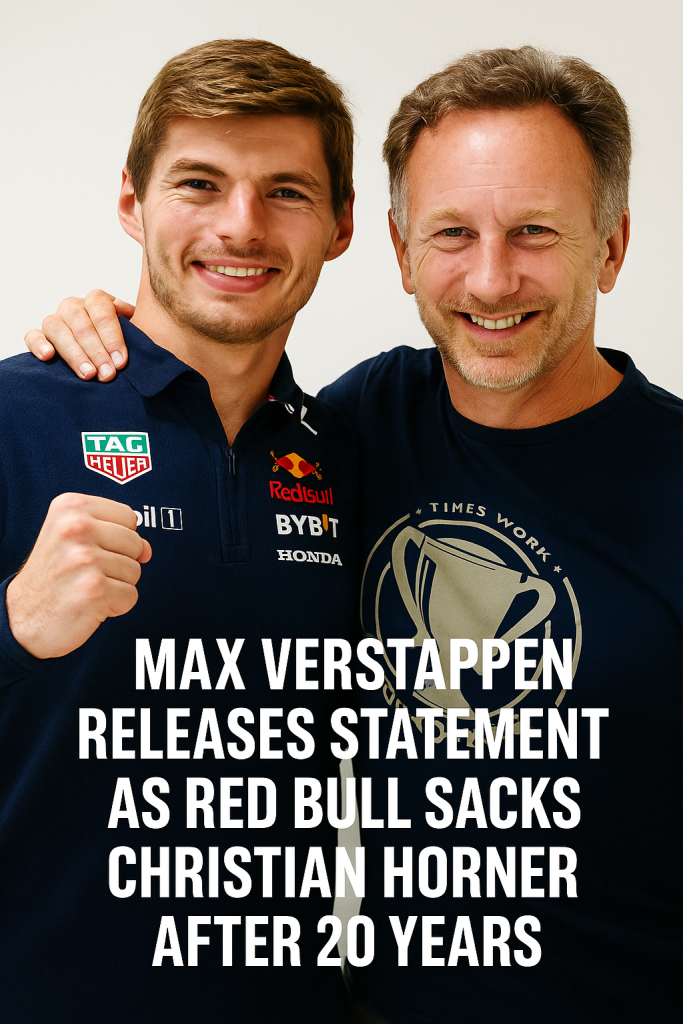In a stunning move, Red Bull Racing has officially terminated Christian Horner’s contract as team principal, bringing to an end his two-decade leadership role. This decisive action comes exactly one year after a highly publicized scandal involving inappropriate text messages that rocked the Formula 1 team’s management.
Christian Horner, who has been at the helm of Red Bull Racing since 2005, guided the team through numerous championship victories and helped elevate the careers of multiple world-class drivers. However, the recent revelations concerning explicit and controversial communications severely damaged both his and the team’s reputation, prompting Red Bull to sever ties despite his long service.
In an unexpected but carefully worded statement, Max Verstappen, the team’s current star driver and two-time World Champion, expressed his disappointment over the departure yet emphasized his focus on the team’s future ambitions. Verstappen said, “While it’s difficult to see Christian leave after so many years, the priority remains on pushing the team forward and continuing our pursuit of excellence on the track.”
The scandal that catalyzed this decision unfolded last year, involving Horner exchanging inappropriate messages that circulated widely on social media and within racing circles. These revelations sparked intense scrutiny and calls for accountability from fans, sponsors, and industry figures alike. Red Bull initially stood by Horner but later declared a zero-tolerance stance on conduct that undermines the team’s values.
Industry insiders suggest this move signals a new chapter for Red Bull Racing. Sources close to the team confirm that an internal restructuring is underway, with an interim leadership team in place as the organization conducts a global executive search for Horner’s successor. The incident has rippled across Formula 1, highlighting the increasing pressure teams face to maintain ethical standards beyond just competitive performance.
Horner’s departure also triggers speculation about how the team will stabilize its internal culture after years of being synonymous with his leadership style and strategic decisions. Analysts point out that maintaining team cohesion and morale, especially ahead of the next racing season, will be crucial. Verstappen’s calm and focused response indicates the driver’s commitment to keeping the squad on track despite managerial upheavals.
Red Bull, known for its innovation and aggressive racing strategy, now faces the challenge of balancing rebuilding its leadership with sustaining momentum in a fiercely competitive sport. The timing of the firing—right after the anniversary of the scandal becoming public—suggests the team has carefully deliberated on the long-term risks of retaining Horner.
As the motorsport community processes this news, many are reflecting on the broader implications for team management and accountability in Formula 1. Horner’s two decades at Red Bull were marked by remarkable success but ended abruptly amid controversy—underscoring that personal conduct off the track can have career-defining consequences.
With the next Grand Prix season approaching, all eyes will be on Red Bull Racing to see how swiftly they adapt under new leadership and how Verstappen’s championship aspirations will influence the team’s renewed direction. The coming weeks promise significant announcements as Red Bull charts a path forward in the aftermath of one of the sport’s most impactful off-track scandals.



